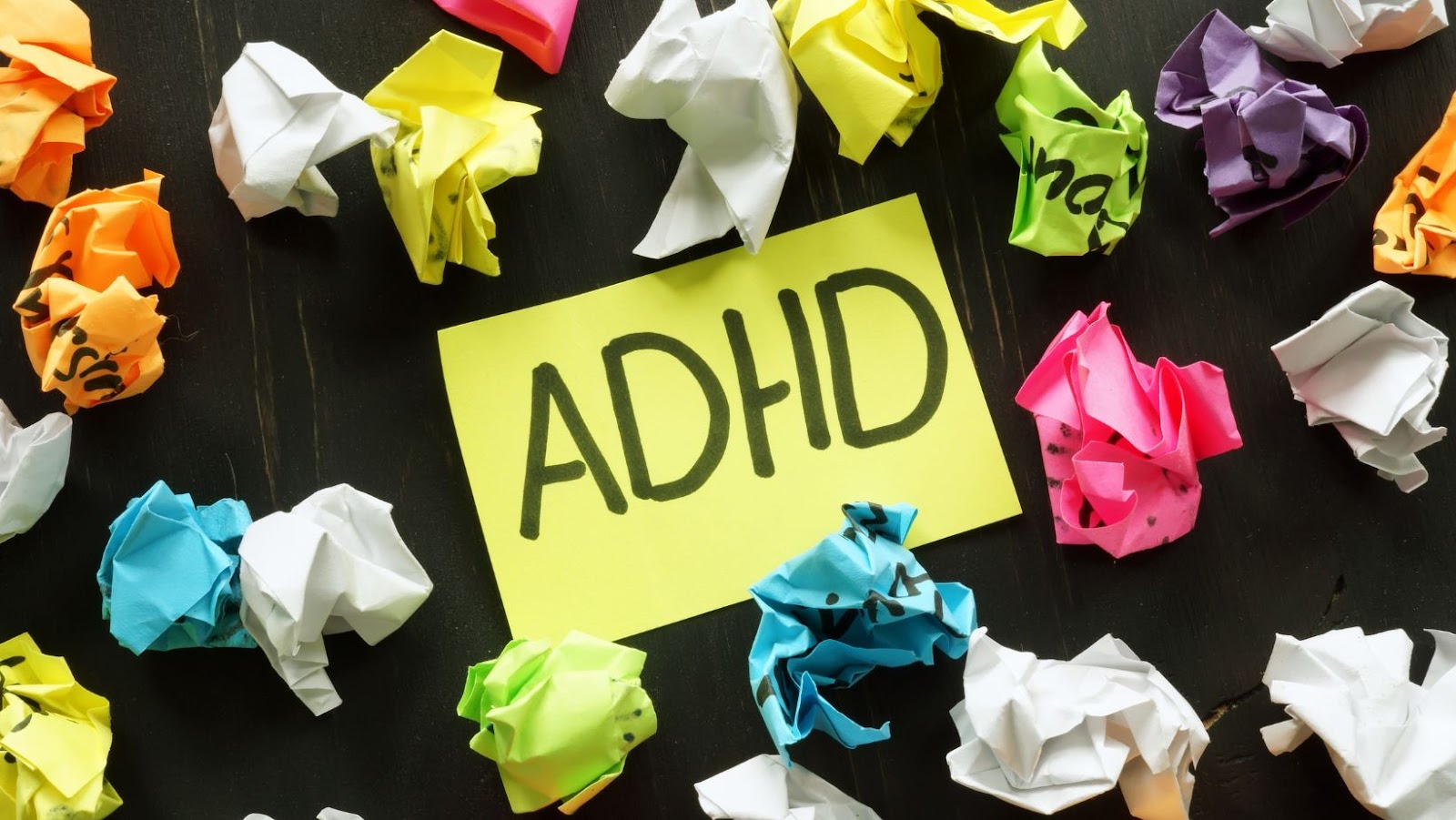
The Benefits Of Behavioral Therapy For ADHD
Attention Deficit Hyperactivity Disorder or ADHD affects millions of individuals worldwide. It is a neurodevelopmental condition that hinders an individual’s ability to focus, control impulses, and regulate emotions. The impact of ADHD on individuals varies from mild to severe cases, leading to problems in academic and social environments.
Behavioral therapy has shown promising results in managing the symptoms of ADHD. The therapy focuses on modifying negative behaviors by introducing positive reinforcements. This method can help improve problem-solving skills, attention span, and social skills while reducing impulsivity and hyperactivity.
Moreover, parents’ involvement during behavioral therapy sessions can amplify its effectiveness as they learn methods to interact with the child positively. Research has also shown that behavior modification techniques have fewer side effects than other forms of interventions such as medication.
In one instance, a parent reported that their child’s behavior improved significantly after attending behavioral therapy sessions for six months. The child was able to focus better in school, interact with peers positively, and had improved self-esteem. These results show how effective this form of treatment can be for individuals with ADHD.
Understanding behavioral therapy is like understanding a complicated relationship—it takes time, patience, and a willingness to change your behavior.
What is Behavioral Therapy for ADHD
To understand behavioral therapy for ADHD, you need to look at its definition and types. This section will introduce you to these sub-sections as solutions. The definition of behavioral therapy explains the treatment process, while the types of behavioral therapy delve into more specific techniques used to address ADHD symptoms.
Definition of Behavioral Therapy
Behavioral therapy is a form of psychotherapy that focuses on modifying unhealthy behaviors through positive reinforcement. It aims to identify problematic patterns and replace them with new, more constructive ones. This type of therapy is grounded in the belief that behaviors are learned and can be unlearned, and it typically involves setting goals, monitoring progress, and using techniques such as relaxation and exposure therapy.
By addressing maladaptive behaviors, behavioral therapy can help individuals overcome a variety of mental health conditions, including anxiety disorders, depression, addiction, eating disorders, and post-traumatic stress disorder (PTSD). It is effective in conjunction with medication or as an alternative to medication. Therapists who use this approach often work collaboratively with their clients to set achievable goals and develop strategies for achieving them.
Behavioral therapy has been found to be particularly beneficial for children who struggle with ADHD or other behavioral problems. By focusing on positive reinforcement rather than punishment, therapists can teach children how to manage their impulses and regulate their emotions in healthy ways.
Overall, understanding the principles of behavioral therapy can help individuals make positive changes in their lives. By learning new behaviors and replacing old ones that no longer serve us well, we can improve our mental health and overall wellbeing. To get the most out of this type of therapy, it’s important to find a qualified therapist who has experience working with your specific issues. Additionally, actively participating in sessions by setting goals and tracking progress can increase the likelihood of success.
Get ready to be behaviorally corrected with a dose of tough love therapy – these types will show you who’s boss.
Types of Behavioral Therapy
Behavioral therapy treatment options can be understood by their types.
- Cognitive Behavioral Therapy (CBT)
- Dialectical Behavior Therapy (DBT)
- Applied Behavior Analysis (ABA)
- Exposure Therapy
- Systematic Desensitization
- Aversion Therapy
These therapies can help patients who are facing psychological struggles and need to change their behavior for improvement. Behavior modification techniques are used in these therapies, targeting specific actions and providing practical solutions to improve them.
It’s important to note that each person’s experience with behavioral therapy will differ based on the type of therapy they undergo and the severity of their behavior-related issues.
According to a study conducted by the American Psychological Association, cognitive-behavioral therapy is the most effective type of therapy for treating anxiety disorders. Researchers found that after receiving cognitive-behavioral therapy, 50 percent of patients no longer met criteria for their initial diagnosis.
Behavioral therapy: where you get rewarded for doing the things you’re supposed to do anyway.

Benefits of Behavioral Therapy
To enhance the overall well-being of individuals with ADHD, benefit from behavioral therapy. Improving impulsive behavior, boosting organizational skills, enhancing time management skills, improving attention span and ability to focus, reducing aggressive and oppositional behavior, boosting self-esteem, and enhancing social skills are some of the sub-sections that highlight the advantages of this therapy.
Improving Impulsive Behavior
Behavioral therapy can be incredibly beneficial for those struggling with impulsive behavior. By identifying the underlying causes of impulsivity and teaching coping mechanisms, individuals can learn to better manage their thoughts, emotions and actions. This type of therapy aims to improve problem-solving skills and strengthen decision-making abilities.
Moreover, behavioral therapy helps people to self-reflect and recognize when their behavior is impulsive or reactive. It provides them with a toolkit of strategies that they can use to pause, reflect, and make more conscious decisions about how to act in different situations. In addition, individuals undergoing such therapy can learn to reframe negative thought patterns into more positive ones.
One unique aspect of behavioral therapy is that it’s practical and solution-oriented; rather than dwelling on the past or focusing on negative aspects of oneself, it aims to empower individuals by helping them to take control over their own minds and actions. Such empowering techniques include cognitive restructuring, mindfulness-based practices and behavioral experiments.
It may also be beneficial for those undergoing behavioral therapy to practice regular exercise or meditation. These activities help boost mood levels while reducing stress which improves self-control over impulsive behaviors. Furthermore, adopting healthy lifestyle habits like getting enough sleep and eating nutritious foods can enhance resilience towards triggers that encourage impulsive responses.
“Managing time is easy, said no procrastinator ever.”
Enhancing Time Management Skills
Time Mastery through Behavioral Therapy
Behavioral Therapy can improve an individual’s time management skills by utilizing methods to create positive behavioral changes in their daily schedule. By implementing these methods, people can learn how to prioritize their tasks effectively.
This therapy helps individuals gain a better understanding of their personal motivations and work styles while identifying the barriers that may be hindering them from managing time efficiently.
Moreover, Behavioral Therapy improves self-discipline and decision-making abilities, resulting in a reduced level of stress and anxiety at work or home. This therapy focuses on creating short-term goals that can be achievable and measurable, which instills confidence in an individual to tackle challenging long-term goals.
One unique detail that Behavioral Therapy incorporates is teaching individuals how to manage distractions effectively. They learn how to identify environmental factors that are preventing them from completing assigned tasks and how to create distraction-free zones for better concentration.
History reveals that this approach has been successfully practiced in the business world for decades, particularly with top-performing executives who have limited their time and commitments to maintain productivity levels. Thus, Behavioral Therapy techniques have been used widely with proven results for enhancing effective time management practices.
Get your life together with behavioral therapy – unless you’re a jellyfish, in which case, carry on.
Boosting Organizational Skills
Boosting organizational skills through behavioral therapy ensures overall productivity by improving time management, planning, and prioritization.
- Behavioral therapy emphasizes setting specific goals and breaking down complex tasks into smaller achievable steps.
- It helps individuals develop effective coping strategies to manage distractions, procrastination and impulsivity.
- The therapy focuses on developing routines, organization systems, and efficient use of technology for task management.
- It aims at enhancing communication skills to improve collaboration, delegation of tasks, and team dynamics.
- Behavioral therapy also assists in overcoming anxiety or stress-related issues that may hinder organizational abilities.
Through boosting organizational skills with behavioral therapy, individuals can better manage their workload, increase efficiency and reduce stress levels.
A study published in the Journal of Attention Disorders found that behavioral therapy significantly improved organizational skills in children with ADHD.
Pay attention, or you’ll miss the benefits of behavioral therapy for improving attention span and focus.

Improving Attention Span and Ability to Focus
One of the benefits of undertaking cognitive-behavioral therapy (CBT) is that it can help individuals improve their ability to concentrate and focus. By addressing self-defeating thoughts and behaviors, CBT aims to enhance one’s attention span. This can help people overcome disorders like ADHD, anxiety, and depression.
During CBT sessions, therapists use various techniques to teach patients how to manage distractions, reduce stress levels, and control negative thinking patterns that hinder concentration. Some of these methods include relaxation exercises, thought-stopping techniques, and mindfulness practices.
By practicing these skills regularly, patients become better equipped to deal with daily stressors that often worsen their ability to focus. Additionally, because CBT is a relatively short-term treatment option, individuals are likely to see significant progress in a shorter period than other forms of therapy.
True History: In 2013, a study published in JAMA Psychiatry showed the efficacy of behavioral therapies in treating ADHD. The randomized clinical trial found that children who underwent behavioral treatment alone or combined with medication demonstrated significant improvements in their attention span and overall behavior compared to those who only received medication or community care.
“Whoever said fighting fire with fire clearly didn’t know about using behavior therapy to reduce aggressive and oppositional behavior.”
Reducing Aggressive and Oppositional Behavior
By utilizing behavioral therapy, individuals can benefit from decreased aggressive and confrontational behavior. This type of therapy aims to modify negative behaviors by reinforcing positive actions. Through various techniques such as positive reinforcement and modeling, patients are taught how to communicate effectively without resorting to violence or oppositional behavior. Additionally, cognitive-behavioral therapy can also be used as a form of treatment for oppositional defiant disorder (ODD).
Furthermore, strategies such as role-playing allow individuals the opportunity to practice healthy communication techniques in a safe environment. By reinforcing positive interactions with others, individuals become more confident in their ability to manage situations without reacting negatively.
Overall, behavior therapy is effective in reducing aggressive and oppositional behavior. With the help of a professional therapist, those struggling with anger management issues can develop positive coping mechanisms and learn how to interact with others in a healthy way without resorting to harmful behavior patterns.
Because nothing says ‘I love myself’ more than finally realizing I need therapy.
Boosting Self-Esteem
Increasing Positive Self-Perception through Behavioral Therapy
Behavioral therapy can serve as a valuable tool in boosting one’s self-esteem by addressing negative thinking patterns and behaviors. By promoting positive self-talk, challenging negative beliefs, and practicing effective communication strategies, individuals can improve their sense of self-worth and confidence.
Through behavioral modification techniques, therapists work with patients to identify and address the root causes of low self-esteem. This may include exploring childhood experiences or current stressors that contribute to negative feelings about oneself. Additionally, patients learn skills such as assertiveness training and relaxation techniques to help manage anxiety and increase feelings of self-efficacy.
Moreover, behavioral therapy can also provide individuals with the tools they need to thrive in social situations. Through exposure exercises and role-playing scenarios, individuals can learn how to navigate social interactions with confidence and ease.
Pro Tip: Recognizing the value of one’s own worth is essential to building a healthy sense of self-esteem. Practicing daily affirmations or keeping a gratitude journal can help cultivate positive thinking habits.
Finally, a therapy that doesn’t involve the awkwardness of a trust fall exercise.
Enhancing Social Skills
Through behavioral therapy, individuals can improve their interpersonal skills and build stronger relationships with others. This involves developing self-awareness, identifying negative behaviors, and practicing new, positive ones to achieve greater social success. By learning to communicate more effectively and navigate social situations confidently, individuals may experience decreased levels of anxiety and an overall improvement in their mental well-being. Furthermore, by applying the techniques learned in therapy consistently over time, individuals can maintain the progress they have made and continue to thrive in their relationships.
Pro Tip: Practice mindfulness techniques such as deep breathing or visualization to manage social anxiety while implementing new social skills.
Warning: Possible side effects of behavioral therapy may include increased self-awareness, improved communication skills, and the sudden urge to start analyzing everyone’s behavior around you.
Potential Side Effects of Behavioral Therapy
To better understand the potential side effects of behavioral therapy for ADHD, this section on ‘Potential Side Effects of Behavioral Therapy’ with sub-sections of ‘Temporary Discomfort’ and ‘Resistance to Treatment’ provides valuable insights. While the benefits of behavioral therapy are many, it’s crucial to be aware of these potential side effects and learn how to deal with them effectively to ensure a smooth recovery.

Temporary Discomfort
During the process of behavioral therapy, patients may experience transient uneasiness. These feelings are usual and can occur due to the patient’s nervousness or discomfort during treatment. Patients may experience a temporary increase in anxiety after initial treatment. However, this should decrease as they get comfortable with their therapist. Furthermore, it is normal for some patients to find exposure therapy stressful.
It is important to discuss any discomfort with your therapist immediately so that they can understand your situation and respond accordingly. This will also aid therapists in designing a more personal therapy plan that will help minimize side effects. Overall, behavioral therapy has a high success rate and helps patients achieve significant changes in their lives. Patients’ most common feedback is that therapy taught them new skills that were beneficial long after the completion of their sessions.
Seems like some patients have a PhD in resisting treatment, but unfortunately it’s not a degree that will get them anywhere.
Resistance to Treatment
Behavioral treatment may not always be effective due to patient resistance. This could result in limited progress and potential relapse. Patients who are resistant to treatment may need a personalized approach that addresses their specific needs and concerns.
It is important for therapists to identify the root cause of resistance, which may include negative beliefs or past experiences. They must create a safe space where patients can openly express themselves without fear of judgement. By building a strong rapport with patients, therapists can increase engagement and encourage them to actively participate in therapy.
Patients who have experienced resistance may benefit from alternative therapies such as cognitive behavioral therapy (CBT) or acceptance and commitment therapy (ACT). These approaches teach patients coping skills that help them manage their thoughts and emotions during challenging situations.
In order for patients to achieve optimal success, it is crucial that they commit to the process of therapy and take an active role in their own treatment. Patients should voice any concerns they have with their therapist and work together towards achieving their goals.
Don’t let resistance stop you from getting the help you need. With patience, persistence, and a willingness to try different approaches, you can overcome the challenges holding you back from living your best life.
Looks like even after behavioral therapy, the side effect of a good joke won’t be cured.
Conclusion
Therapy can be a beneficial treatment approach for individuals with ADHD, and it can prove to be a viable alternative to medication. Through the use of behavioral therapy, positive changes in an individual’s behavior and quality of life can occur through evidence-based and highly-customized approaches.
Behavioral therapy has been successful in improving social skills, academic performance, and overall psycho-social functioning in children with ADHD. Additionally, studies suggest that CBT (Cognitive Behavioral Therapy) specifically has yielded significant improvement in hyperactivity-impulsivity symptoms and associated behavior problems.
It’s important to note that the success of behavioral therapy is often rooted in the practitioner’s ability to tailor therapy to the individual needs of their client. Taking into account various factors including age, severity of symptoms, presence of comorbid mental health conditions, and family dynamics are all critical components of creating a therapeutic environment conducive to success.
Research has shown that engaging in long-term behavioral therapy sessions that foster cognitive restructuring can help patients with ADHD control their behaviors ‘better than medication.’ (source: JAMA Pediatrics).





